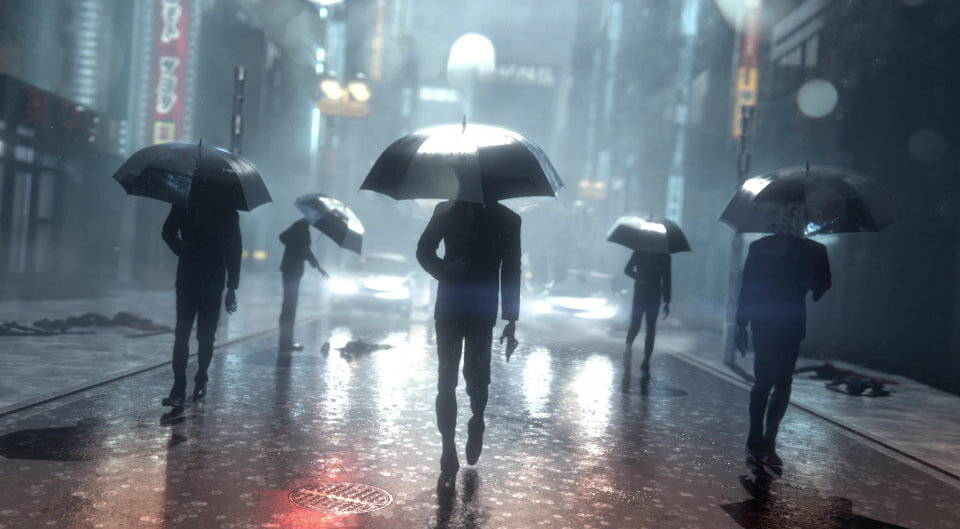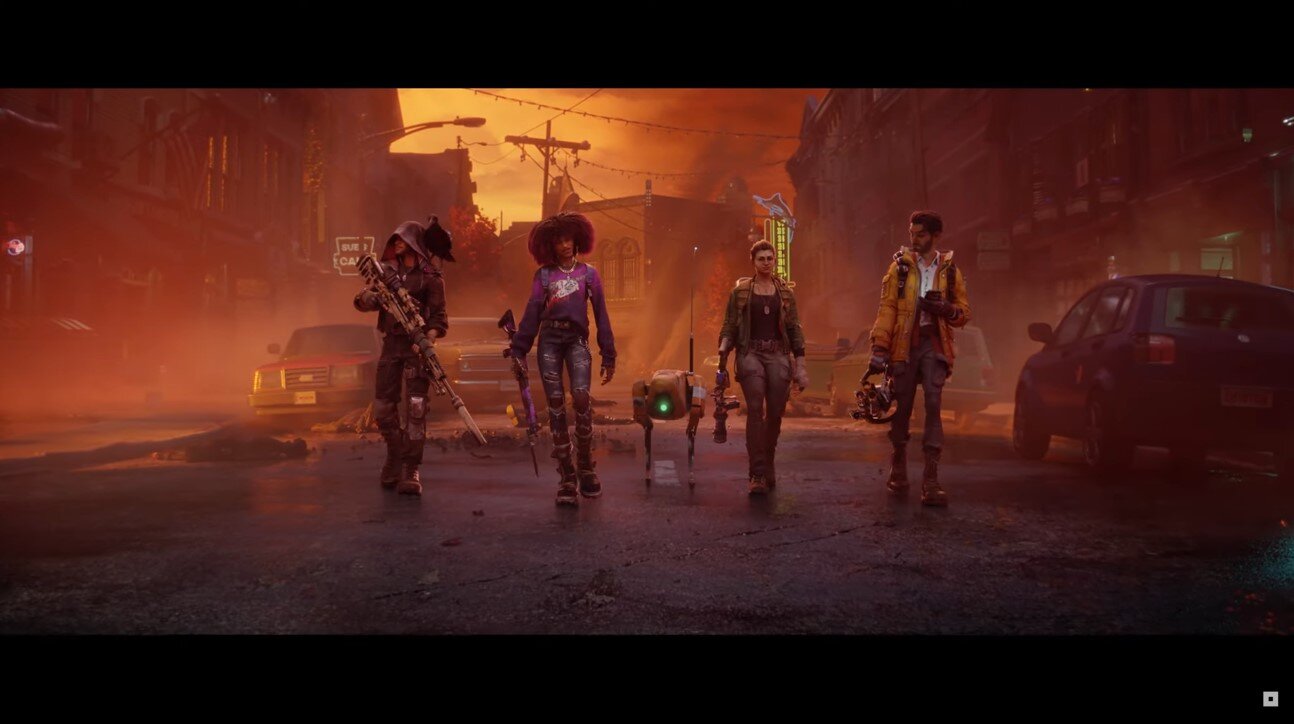Why Cinematic Game Trailers Are Made
Cinematic game trailers are essentially short films with a level of production value generally far beyond the capabilities of what computers and consoles of the time can render in real-time and therefore do not really represent what a game will look like when a player purchases the game and is playing it at their PC or console. They're a dramatized, idealized version of what a scenario in the game could look like.
Modern consoles can produce incredibly impressive graphics which render 30-60 images per second, but will never compare to a farms of computers which take hours to render individual frames with all sorts of realistic lighting, refractions, physics, textures, etc. Comparing a cinematic trailer to a gameplay trailer is like the digital equivalent of comparing a feature film years in the making to a recording of a live theater performance.
What spawned this topic was this comment I received on a recent TikTok video I made (grammar lightly edited):
"Why do they keep making cinematic trailers that don't look like the actual game? I genuinely don't trust the initial trailer because it's rarely gameplay."
The premise of the TikTok comment is essentially: "Players only care about seeing REAL gameplay, therefore there's no point in showing us this movie which sort of represents the game." I think cinematic trailers play a much bigger role in the marketing of the game, and showing gameplay is only one part of the marketing goals of AAA game publishers and developers.
Some gamers simply hate and even seem to resent the existence of cinematic game trailers, but that doesn't mean they don't serve a purpose.
I think cinematic game trailers exist to:
Announce games
Show production value
Build a stronger brand
Game Announcements
The main reason frequently cited for the existence of cinematic announce trailers is that big budget AAA games get announced so far in advance of their release there simply isn't enough of the game which functions well enough to capture footage from and the art assets aren't at a level of quality where they can be shown to the public yet. The modern arms race of advanced video game graphics on ever more powerful consoles and PC graphics cards mean a AAA game can be dead on arrival if it doesn't make a strong first impression, especially when compared to its peers.
So game publishers turn to CG production companies like Digic Pictures, Blur, Plastic Wax and others to produce incredibly impressive cinematic game trailers to reveal at big shows like E3. In collaboration with the developers they produce cinematics stemmed from the game's artistic vision and without the burden of realtime rendering or functioning game mechanics.
You might wonder: "Why not just wait until the game is finished enough to show off to the public in all its glory?" Here is where my speculation really starts because this is a level of games business which I'm not privy to.
One reason big budget AAA games might start marketing so early is simply because the games are so big. By which I mean, there are simply more things in the game to market like its: story, gameplay systems, mission types, play styles, voice cast, advanced technology, separate game modes, multiplayer, etc. Most small indie games would have to start repeating content once they've released two or three trailers, but a lot of big AAA games can sustain six or more plus featurettes, etc.
This means there are that many more tentpole marketing beats for a big budget game and to get the most value out of those beats they want to make sure there are as many eyeballs looking when they hit. Nowadays publishers are less beholden to the timing of industry events like E3 because they can just put on their own livestream show, but there are still a finite number of big events per year to show off games whether it's via a publisher event, console showcase, etc.
All this to say, it makes sense AAA games start marketing early if they plan on having a large number of beats through their marketing timeline, a long development cycle, and also not a lot of major events to show at.
Cinematic trailers usually imply "Yeah... you won't see 'real' gameplay for a while, but LOOK AT HOW SHINY THIS IS!"
Showing Production Value
Flashy cinematic game trailers look expensive as all heck and I think that's largely the point. The expensive looking cinematic trailer which looks like a Hollywood film communicates production value; it says there's a lot of money behind this game and therefore it's worth your while. I think it's similar to how marketing consultant Chris Zukowski recommends indie game devs hire a good illustrator to make the capsule art for their game especially if the alternative is to show the game's pixel art or a screenshot from the game with the title logo overplayed.
When you have your choice of dozens or hundreds of games, the one which looks like it has the most money and talent behind it will stand out from the rest. Of course there are many amazing games which have low fidelity graphics and low budgets, but in the AAA space where players spent hundreds of dollars just for the machine which plays the game, they want the most impressive game they can get in order to justify their money spent. I think increasing the perceived value of a game's production is a big part of the marketing even if that perception is somewhat unconscious to the consumer.
Also, At AAA budgets I don't think gamers are the only ones to whom publishers and developers are selling the game. I'm willing to bet there are giant business deals to be made for AAA games whether it's simply the major brick and mortar retailers like Walmart and Best Buy, or some sort of cross promotional deal where a game is featured with some sort of food or drink. CG trailers seem like precisely the thing needed to impress non-gamer executives in business meetings.
Another thing to consider is that big game events want the biggest and flashiest trailers so they have a good show. I'm willing to bet the people who program those shows are also very enticed by flashy CG trailers of immense production value.
Do cinematic trailers make you feel like a game will have high production value?
In the end I think even though cinematic trailers don't showcase the gameplay footage gamers want to see, they increase the cachet of a game, get seen by lots and lots of people, and build the idea of high production value into the brand of the developers and/or publishers. And if spending millions of dollars on a CG trailer makes people think "This game, developer or publisher make high quality products" then that probably sounds like a pretty good deal to them.
Btw, if you want to read more about what I think makes a great cinematic trailer you can read about my favorites from 2019 and 2020!



